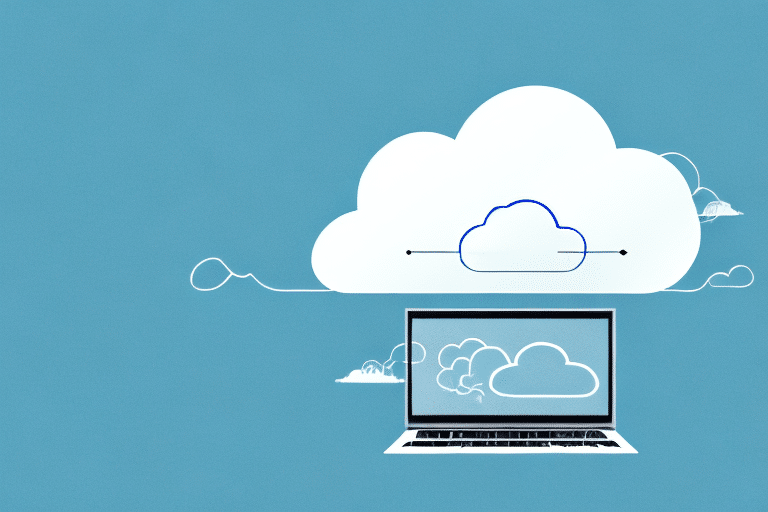In today’s fast-paced digital world, businesses of all sizes are looking for efficient and cost-effective ways to manage their data. Cloud-based technology has emerged as a game-changer in this regard, with its ability to store and process information remotely on secure servers.
But with so many different types of cloud services available, it can be overwhelming to choose the right one for your business needs. In this blog post, we’ll explore the benefits of using a cloud-based solution and discuss the various types of clouds available in order to help you decide what the best cloud-based technology is for your business.
What are the different types of clouds?
There are three primary types of cloud computing: public, private, and hybrid. Public clouds are owned and operated by third-party service providers, who offer their services to businesses on a pay-per-use basis. These services include infrastructure-as-a-service (IaaS), platform-as-a-service (PaaS), and software-as-a-service (SaaS).
Private clouds, on the other hand, are dedicated solely to one organization’s use. They can manage them either internally or externally by a third-party vendor.
Hybrid clouds combine elements of both public and private clouds in order to provide greater flexibility for businesses. This allows companies to keep sensitive data in their own internal systems while still using external resources like public cloud servers for less-sensitive data.
Each type of cloud has its benefits and drawbacks depending on the needs of your business. It is important to carefully consider all options before deciding what the best cloud-based technology for your company’s specific requirements.
What are the benefits of using cloud-based technology?
Cloud-based technology has revolutionized the way businesses operate. Unlike traditional software, cloud-based systems offer a range of benefits that can significantly improve business operations. One of the main advantages is scalability; cloud-based systems allow businesses to easily scale up or down depending on their needs.
Another significant benefit of using cloud-based technology is accessibility. With a reliable internet connection, employees can access data and applications from anywhere in the world. This flexibility allows for remote work, which has become increasingly important during the COVID-19 pandemic.
Cloud-based systems also provide robust security measures for sensitive data and information. Data backups are automatic and secure, reducing the risk of data loss due to hardware failure or cybercrime.
Additionally, cost-effectiveness is another advantage that comes with adopting cloud-based technology. Cloud providers typically offer subscription models that eliminate upfront costs associated with traditional software licensing fees and server maintenance costs.
Utilizing cloud-based technology offers numerous benefits for businesses looking to streamline their operations while enjoying reliable security measures at an affordable cost.
How is cloud-based technology different from traditional software?
Cloud-based technology operates through remote servers that are accessed over the internet. This means that instead of installing software on individual computers or servers, users can access applications and services from anywhere with an internet connection. This is different from traditional software which requires installation on local devices.
One major benefit of cloud-based technology is its scalability. With traditional software, businesses would need to purchase additional licenses and hardware to accommodate growth in demand. However, with cloud-based solutions, resources can be easily scaled up or down as needed without having to make significant investments in new infrastructure.
Another difference between cloud-based technology and traditional software is the level of maintenance required. Traditional software often requires regular updates and patches which you can manually install on each device. Cloud technologies generally require less maintenance since the provider automatically applies updates.
One key distinction between cloud-based technology and traditional software lies in their cost models. Traditional software typically involves a large upfront investment for licensing fees while ongoing maintenance costs add up over time. In contrast, cloud services offer flexible pricing options such as pay-as-you-go plans or subscription models where customers only pay for what they use.
There are many differences between cloud-based technologies and traditional software systems which make them suitable for different types of businesses depending on their needs and priorities.
Conclusion
After exploring the different types of clouds, the benefits of using cloud-based technology, and how it differs from traditional software, it’s clear that cloud-based technology has a lot to offer businesses. The ease of use, cost-effectiveness, scalability, and flexibility make it an attractive option for companies looking to streamline their operations.
When choosing which type of cloud service to use for your business needs, consider your specific requirements and budget. Do you need Infrastructure-as-a-Service (IaaS), Platform-as-a-Service (PaaS), or Software-as-a-Service (SaaS)? Once you have identified your needs and preferences – whether speed or security is more important – then choose the provider that best fits those criteria.
While there are many options available in terms of cloud-based technologies out there today with varying strengths and weaknesses based on certain factors like cost-effectiveness as well as security concerns among others. It’s up to each individual company to determine what works best for them based on their unique objectives so they can optimize performance within their respective industries.





